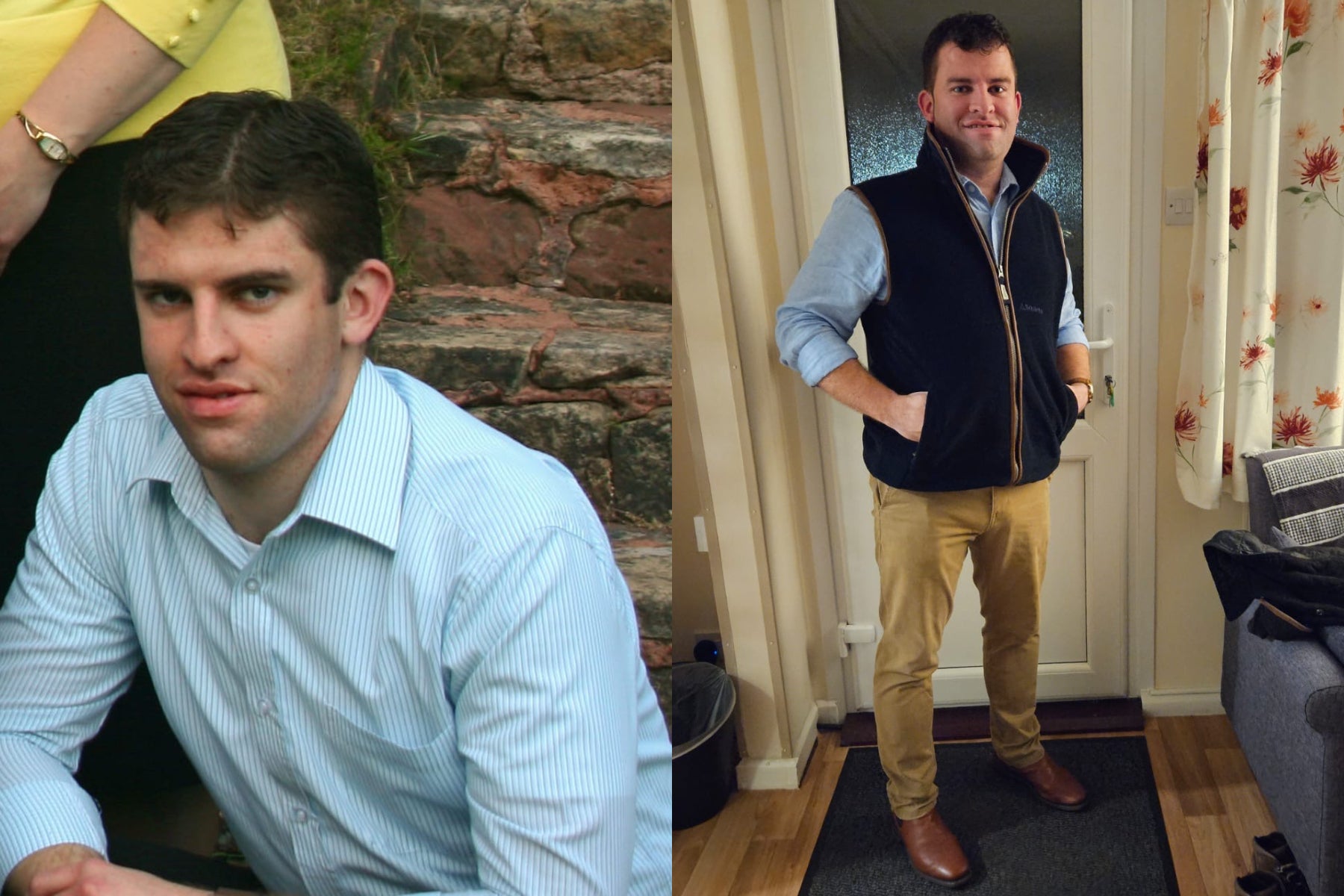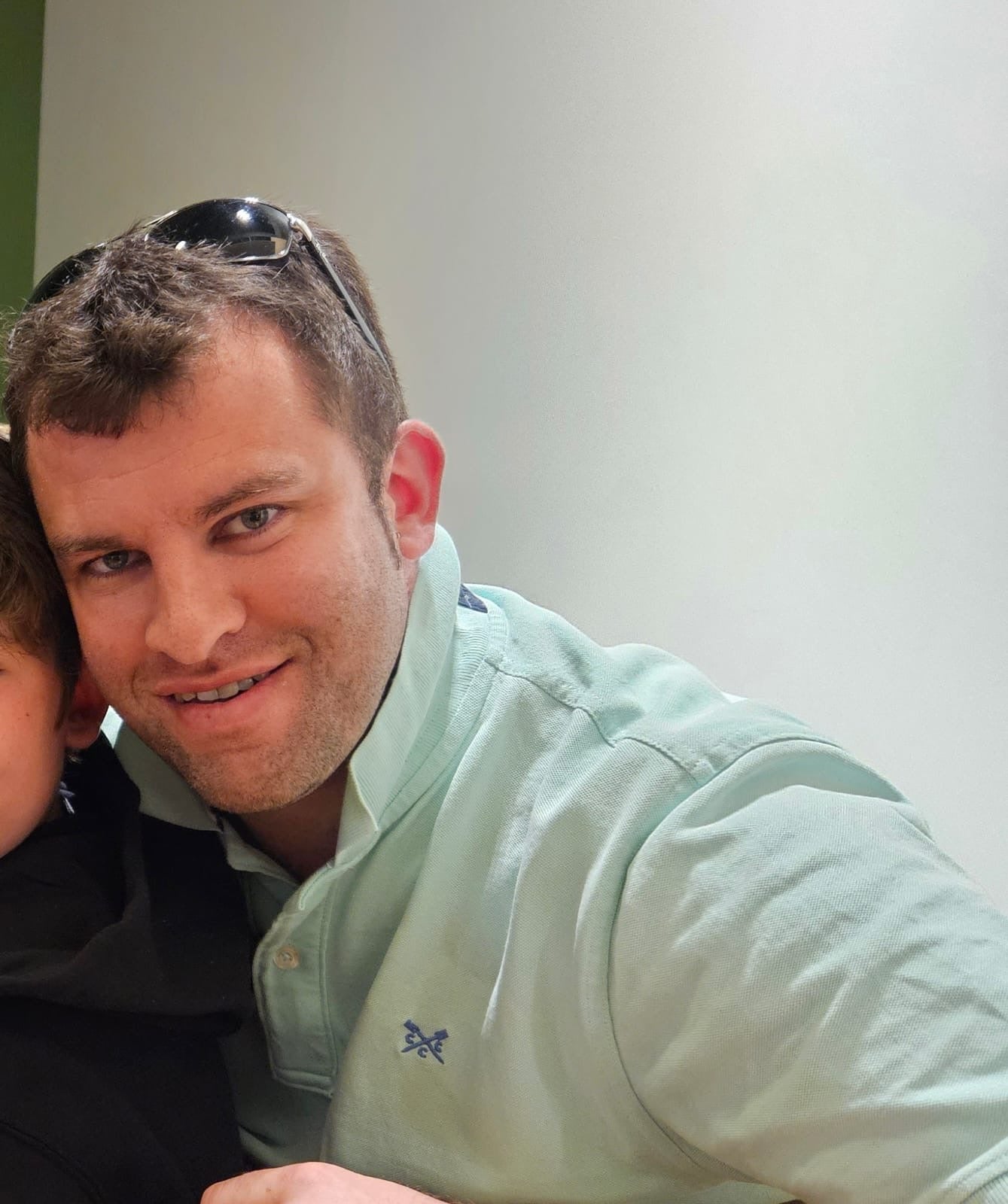Plymouth Brethren: Man who grew up in church ‘cult’ said he attempted suicide after leaving
Gilli fled the church in 2012 at the age of 24 to be with his girlfriend

A man born into a church he described as a “cult” - where he claims he was sexually abused by a member and was not allowed to listen to CDs, go to restaurants or date women before proposing - attempted suicide three times upon leaving because of the trauma.
John “Gilli” Gilliland, 35, a commercial director who now lives in Northallerton in North Yorkshire, was born into the Plymouth Brethren Christian Church (PBCC), a subset of the Christian evangelical movement, in a different part of the country.
The PBCC is commonly referred to as a “cult” by ex-members – although the group denies being a cult, and instead refers to itself as a “mainstream Christian Church”.
Because of his traumatic experiences while in the PBCC, he now goes by “Gilli” instead of John, as he associates his birth name with his “past life”.
The dad of three, while in a Brethren-specific school, claims the staff glued pages of books together which they thought went against the church’s teachings, which the church has denied, and when mobile phones were introduced, he believes the church “monitored” all correspondence.
Gilli left the church in 2012, aged 24, to be with a non-church member and now has no contact with his family but has adjusted to life in the “outside world”, now identifying as having no faith.
He said: “It’s not something I’m exactly proud of, but at the same time I’m not ashamed to admit that I’ve had three suicide attempts just because you hit rock bottom… and (from) the trauma.

“A lot of that is related to thinking you’re not good enough because you’re going against the (church’s) rules and the impact of losing everything you’ve ever known – your life is so, so structured, and so strict, when you leave, and that structure just goes.”
From around the age of 14 to 20, he alleged he was sexually abused by a member of the church, and that the alleged abuser is protected by the church – a claim the church has denied.
“Obviously, it’s a horrific thing to go through but I think the thing that’s probably the hardest part is the fact that the abuser is still protected, and still is protected and probably will be for the rest of our lives,” he said.
“I didn’t know what sexual abuse was for a long time, even after I left.
“I didn’t want to let myself believe that I had been (abused) because of the stigma that was attached to it.
“There was some part of me that was guilty for having had it done to me… my reason for not telling the police is that it’s not something that anybody else has ever witnessed apart from the abuser and myself.”

When working for a business owned by members of the church, Gilli began developing romantic feelings for a colleague, who was not a member, and the pair began dating in secret – after three months, he decided to leave the church to be with his girlfriend.
“I basically had a choice to make – I could either end the relationship or I would have to leave and I chose to follow my heart,” he explained.
“I wasn’t going to end a relationship just because of rules and I wasn’t going to be told I shouldn’t fall in love.”
Gilli officially left the church in December 2012, and to begin with he was “scared (he) would be struck down” by doing things that were prohibited by the church, but eventually adjusted to a life where he could watch television and attend concerts.
He now helps host a podcast, Get A Life, speaking to other ex-members of the church, which he said has helped him process the trauma.
A spokesperson from the Plymouth Brethren Christian Church said they “fully respect” his decision to leave the church but said “his description of life as a member of our church does not in any way reflect our beliefs, practices or the common experiences of our members”.
They added: “In line with our Christian beliefs, we treat the safety and wellbeing of our members with the utmost importance and have robust safeguarding policies and practices in place to keep our community safe. We see any form of abuse as utterly abhorrent and strongly encourage anyone, including Mr Gilliland, to report any criminal activity to the police.
“Our commitment to protecting the wellbeing of our members also extends to helping those who are facing issues with their mental health to access professional help and guidance. Indicative of this commitment, the charitable arm of our church also runs initiatives and campaigns dedicated to combating harmful social stigmas around mental ill health.
“At the end of the day, our members are Christian and will seek to act with kindness and compassion. We wish Mr Gilliland well and our offer of care and support for Mr Gilliland remains enduring.”
Anyone who needs support can contact Samaritans, free, 24/7, on 116 123, email jo@samaritans.org or visit www.samaritans.org
Join our commenting forum
Join thought-provoking conversations, follow other Independent readers and see their replies
Comments
Bookmark popover
Removed from bookmarks